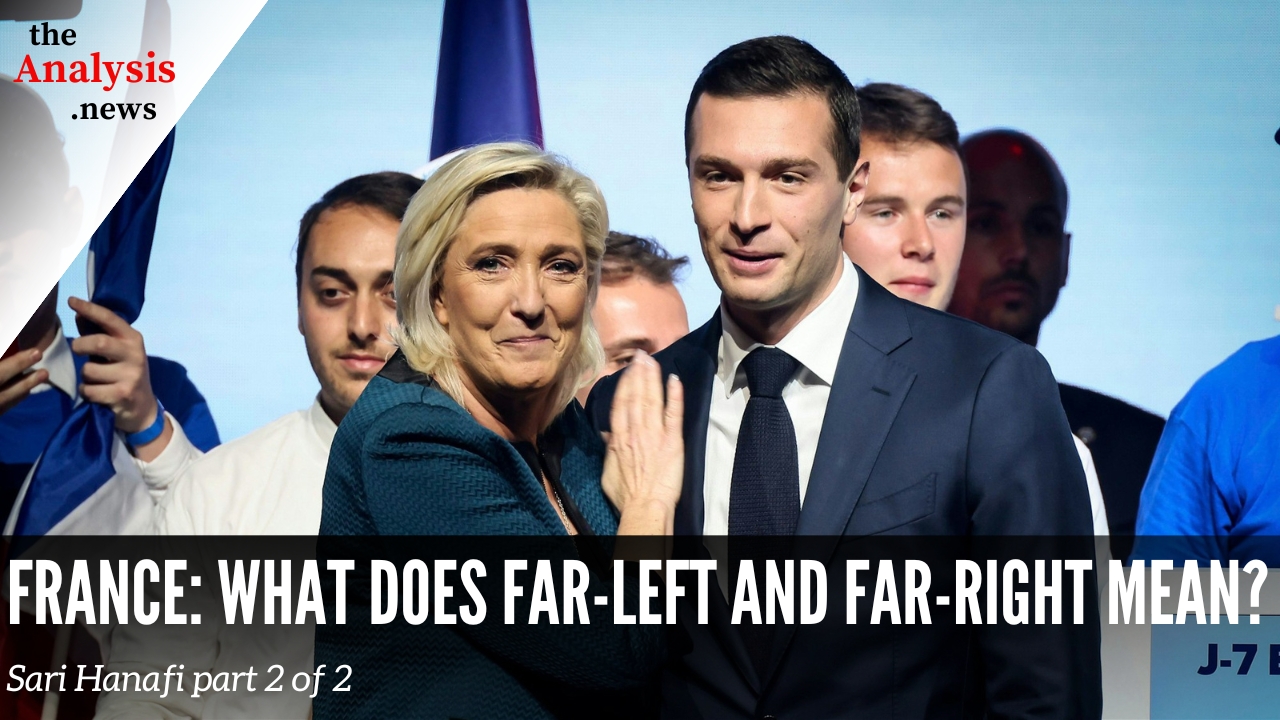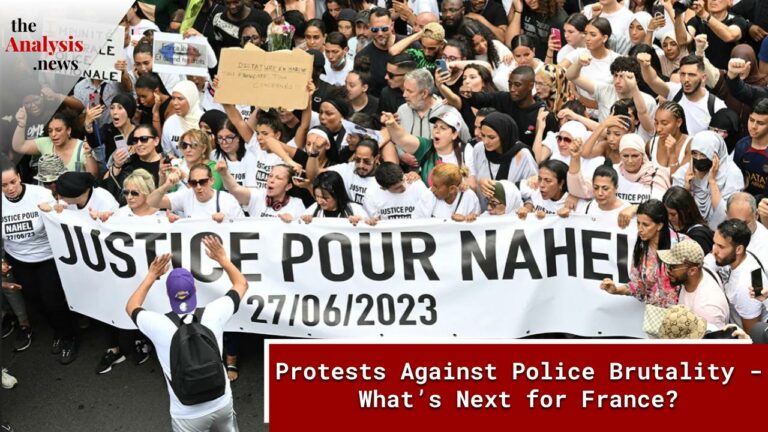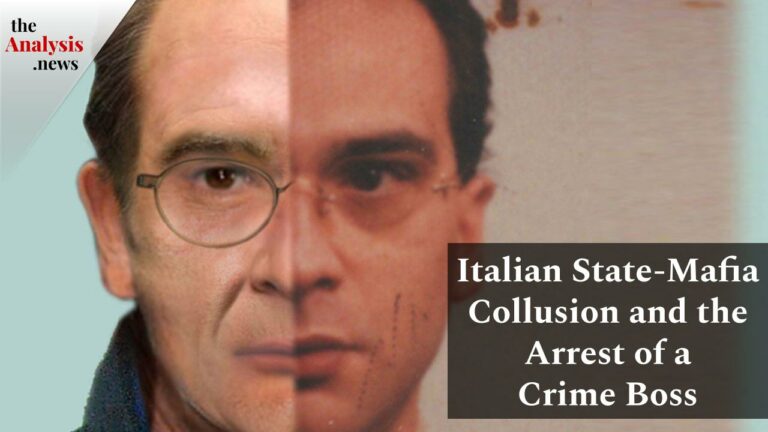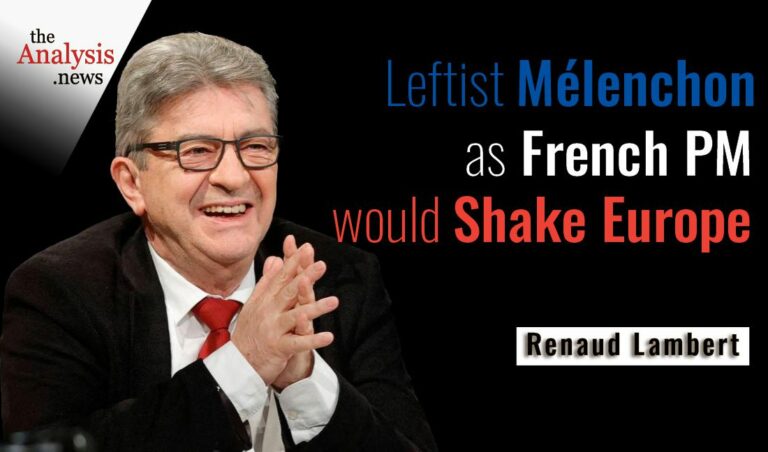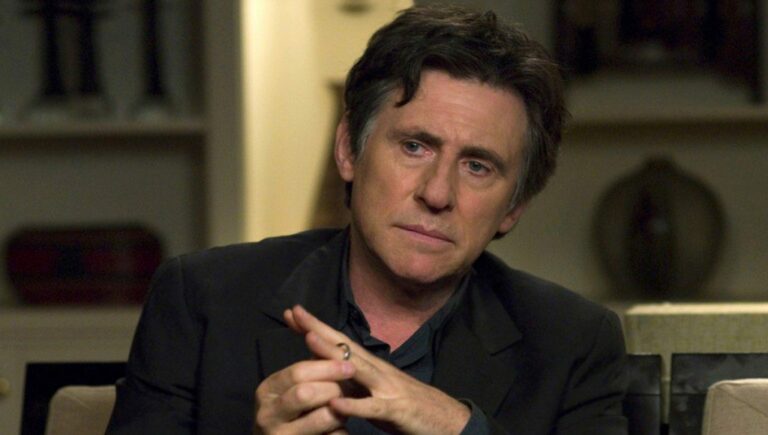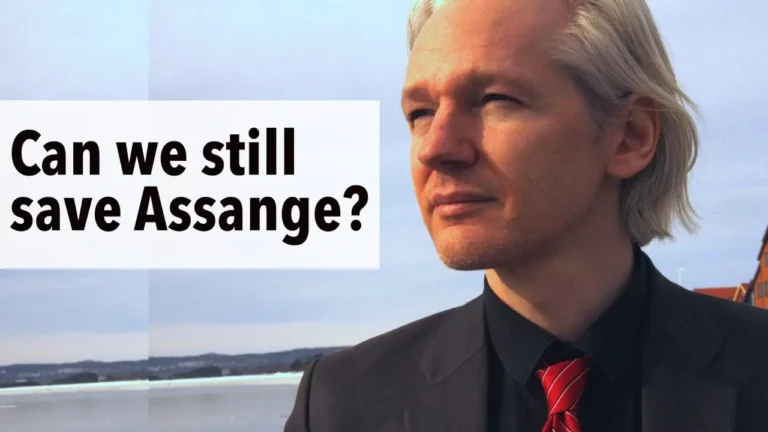France: What Does Far-Left and Far-Right Mean? – Sari Hanafi Pt. 2/2
In part 2, French-Palestinian sociologist Dr. Sari Hanafi discusses right-wing movements in France and Italy and the misuse of the descriptor “hard left” or “extreme left” to misrepresent the platform of Jean-Luc Mélenchon’s France Unbowed.
Weaponizing Antisemitism to Politically Assassinate the French Left – Sari Hanafi Pt. 1/2
Talia Baroncelli
Hi. You’re watching theAnalysis.news, and I’m your host, Talia Baroncelli. You’re watching part two of my discussion with French-Palestinian sociologist Sari Hanafi. We’ll be debating the terms far-right and far-left within the context of French and European politics.
If you’d like to support us, you can go to our website, theAnalysis.news, hit the donate button at the top right corner of the screen. Make sure you’re on our mailing list; that way, you get a notification via email every time a new episode is published. See you in a bit with Sari Hanafi.
I’m very happy to be joined by Dr. Sari Hanafi. He is a professor of sociology at the American University of Beirut and is the Director of the Center of Arab and Middle Eastern Studies. He is also French of Palestinian origin, and he recently finished writing a book on the crisis of liberal democracy. The book is called Against Symbolic Liberalism: A Plea for Dialogic Sociology. Thank you so much for joining me again, Sari.
Sari Hanafi
Thank you, Talia. A pleasure to be with you.
Talia Baroncelli
I still have a few questions because, at the beginning, you were saying that you wouldn’t use the term far-right for the National Rally. Of course, you’ve already mentioned that the founder of the party, which was originally the National Front, Jean-Marie Le Pen, comes from a very fascist tradition. But then his daughter, Marine Le Pen, tried to extricate the party from that history, tried to call the party neither left nor right, but more nationalist or populist. A lot of people, if you just read YouTube comments, they say that this isn’t the far right. This is just young people trying to protect French culture or French heritage.
Before we get to the far-left or that term, the far-left, why would you say the far-right isn’t exactly the right descriptor? If you’re saying that the majority espouse these values, then yes, maybe the discourse is potentially shifting to the right. But if you look at things objectively then the National Rally still does represent far-right values. Does it not?
Sari Hanafi
Yeah, this is a very good question. Actually, in the last 15 years, you have so much literature that a left-right divide doesn’t have much meaning today in understanding how people make their moral reasoning and justifications for how they behave. It’s not the case anymore. You don’t have clear-cut right-wing values, left-wing values, or even political policies. You see a convergence between Social Democrats and Christian Democrats in many countries in Europe and elsewhere.
The argument I bring is simply the following. Often the word far represents a meaning that it’s in the margin of the political specter. This is the meaning of far. You have the center. You have the left and right. Then you have the extremity, far-right and far-left. Now the problem is if this far-right or far-left becomes the majority, in that case, the word far doesn’t have much meaning. This is what I’m trying to say.
A clear case is Trump. With whom did Trump create his first group? It was the Tea Party in the United States. The Tea Party in the United States is far-right. The Republican is right. The Democrat is left. Then there is the far right. This Tea Party today is an inherent part of the Republicans. There is no Tea Party anymore, by the way. They really assimilated within this Republican Party. I can describe some of the policies of this party as fascist, authoritarian, and populist.
I think Macron and the National Rally are both a populist party. Macron is in the center. Populism has a specific meaning in political science, and I use it not as an insult. When you create a movement outside of the establishment where you have a program, when you say all the politics is shit except my politics, this is populism. I keep this word far as a quantitative measurement. Even if you are not using the word far-right, it doesn’t mean you agree with this or you see what these people say.
Look, I am sensitive to this because I know the power of labeling. In the Arab world, for instance, this is how you vilify a political party. You say this is Islamist, and then it means that you should not be in government. In the past, you say the same thing about communists as radicals. I’m very careful not to use this label as a label, but analytically and descriptively, I can really be very harsh.
Giorgia Meloni is very interesting. I had a conversation a few days ago with a friend, with an Italian political scientist, and he told me that the Italian media don’t talk anymore about Giorgia Meloni’s political party or group as far-right wing. They are the majority. They won the election. But having said that, we can criticize Giorgia Meloni. Meloni’s policy is against migration; some of her policies, i.e., economic and foreign policies. We can talk about it, but I’m not sure the word today, to say Giorgia Meloni is far-right, has much meaning.
Talia Baroncelli
I see what you mean by not trivializing the word far-right because if you throw it around too much, then it could lose its impact, just as if you throw around the word anti-Semitism too much, it also loses its value.
I think there are perhaps two things to distinguish here, and that’s the people who actually vote for these parties; not all of them are racist or far-right. A lot of them are people who have been disillusioned by the establishment, by the elite. They don’t have good jobs. They’re affected by all sorts of outside economic factors. Maybe the pension reform is very important to them. The cost of living crisis, inflation, all of these things have pushed them to see things through a lens of migration, blame people coming in from other countries, and scapegoat those individuals and not see the real culprits, the elite financiers. In other words, Macron’s financial elite. Perhaps the voters of these far-right parties are not necessarily all far-right themselves. They’re being preyed upon and they’re leaning more towards the right because the left is maybe not presenting an attractive political platform to them.
Back to Meloni’s case. Giorgia Meloni in Italy, she’s the leader of Fratelli d’Italia, the Brothers of Italy. There was actually a recent investigation that did spark a discussion about the far-right in Italy. If I can just briefly mention this, it was an investigation led by an investigative outlet called Fanpage.it. They went undercover and attended several meetings of Meloni’s youth group called Gioventù Nazionale. They made all sorts of recordings showing people in this youth group, anywhere between the ages of 14 to 32, saying things like “Sieg Heil,” the infamous Nazi salute, and also “Duce Duce,” referring to Mussolini. They were also saying things like Jews are of a different race, that they’re of a completely different race from white people, and that Black people are of a different race. They were making explicitly anti-Semitic statements.
There were people from her political party, Fratelli d’Italia, actually present at a lot of these meetings. I think what this signifies is that the far-right and their ideologies actually becoming more accepted and more visible. These people are not as afraid to attend these sorts of meetings anymore, and it’s gaining political currency. This did unleash a discussion around the far-right in Italy.
What’s interesting is that Meloni did not address this particular investigation in Italy itself. She did say that it was a hit job, but she only addressed it when pressed by reporters in Brussels, saying that she wouldn’t accept nostalgic or anti-Semitic statements from within her party. I think that does indicate that she doesn’t espouse these far-right values and people within her party do, but that it’s not really playing out that way and that the narrative has shifted so far to the right that to call it far-right almost seems redundant.
Sari Hanafi
Yeah. Thank you for bringing this up. Look, my position is the following. I don’t mind after the decomposition that you have a recomposition and use certain vocabulary. You need to do your homework. This is exactly, I think, what the reporter you talked about did, by investigating what vocabulary and doctrine is taught within the Fratelli d’Italia party and others.
Really, for me, the big lesson I learned is from a book called Stranger in Their Own Land. It’s an ethnographical work on the Tea Party group done by a famous American sociologist, Arlie Hochschild. Arlie Hochschild spent time with Tea Party supporters and realized that some of their claims are really leftist claims, historically. They are not in favor of letting big capital… when they find themselves making more money by moving a car factory from the United States to, let’s say, Thailand or Vietnam. They said, “No, we need some rules from the state to regulate private property.” She realized that they said the Democrats didn’t do it. Some of the Tea Party supporters come from the Democrats, historically. They are white working-class people who historically were devoted Democrats. You see, we need to do this decomposition, this analysis, before we decide where this party situates itself.
Georgia Meloni is part of a worldwide coalition called National Conservatism. You also have a foundation called the Burke Foundation. [Edmund] Burke was a famous British right-wing philosopher. I forgot his first name. The Burke Foundation is a National Conservatism Foundation headed by the former advisor of Netanyahu, by the way, an Israeli-American guy who is very right-wing. Georgia Meloni was a keynote speaker five years ago at this convention. You see Meloni’s agenda, values, social values, economic values, and political values that she has. Some of them are really alarming. Some of it is conservative. It is as simple as that.
Today, there is a feeling among some people that the liberals are imposing their conception of good on society. They want to change the curriculum in schools on controversial issues, for instance, in the name of non-discrimination against LGBTQ and to propagate the idea of gender fluidity.
It’s a very interesting discourse of Georgia Meloni five years ago; I would not qualify it as homophobic. Although I know that within her political party rank, people are homophobic. Here, she’s built her agenda, social agenda, or family agenda, in a very careful way. She is not in favor of discriminating against any sexual orientation. But she is saying, “I have certain values where I believe that heteronormativity is a good path for me, for instance, but I’m not discriminating against others.”
This is part of my book Against Symbolic Liberalism. It is meant to show that if we are not careful to distinguish between the conception of justice with which society should agree, it’s clearly to be aligned with the Universal Declaration of Human Rights, where there’s no discrimination on the basis of gender, race, sexual orientation, even social class, etc. This should be kept like a Bible to allow the plurality of the conception of the good. This is the basic Political Liberalism of John Rawls, that the conception of the good, the way I want to live, how I want to dress, how I go to swim, what food I eat, this conception of the good life or the good, this should be pluralistic and should be kept pluralistic. When the conception of the good enters into conflict with other conceptions of the good, which is always the case, i.e., for [inaudible] people, for LGBTQ, for whether we will eat meat today; you know, some of the radical vegetarian or vegan groups, they are in favor of banning this. When the conception of the good enters into conflict in society, we should be sure that there is sufficient discussion in society and that it is not imposed from above, specifically using the schools as a proxy of state choice or the elite in power.
This issue today really makes some people move to the right because of how the culture of the left abuses their position. They forgot about social justice and social class analysis. They are not talking about social class anymore. They are really interested in more cultural claims about specific issues, sexual orientation, culture, and art. People’s secularism becomes anti-clericalist (against religion) instead of saying we need a safe distance between politics and religion, between the state and religion. Instead of this, they become anti-clericalists. In this case, what happens is that the population moves to the right. Hungarians start voting for [Viktor] Orbán and people like that. If we are not careful about our language, about our liberalism, the left– and I come from the left. I do this self-criticism of my political group. If we are not careful about this, we are sure that less and less we will win elections.
Talia Baroncelli
To pick up on your point about Meloni, the way that she frames things is she says “God, Homeland, and Family.” She’s presenting it in such a way that might not appear to be homophobic to some people, but it’s still laying out the playing field for who is considered to be a good member of society and who isn’t. I think she’s drawing a line there. If you look at some of the legislation that she supports, her party does not support the DDL zan legislation, which would, in fact, make any crimes against people who are LGBTQ an aggravating circumstance of that crime. They’re trying to water down or not recognize crimes that are motivated by LGBTQ hatred as being an aggravating circumstance.
I think it’s the right moment now to talk about the left, as I think we can both argue that we both identify as being part of the left. What does that even mean to be on the left? If you look at the French parties, for example, Jean-Luc Mélenchon’s party, they’re called the extreme-left or the far-left. What does that mean? Is that something based on an objective assessment, or is that something that’s blown out of proportion in the media? If they’re really far-left, they wouldn’t be in any position to govern. They probably wouldn’t be accepted at all within the left-wing coalition. Based on your arguments here about a pluralistic society, how do we assess the left and also its potential failures by focusing in certain instances on cultural issues and not on economic issues?
Sari Hanafi
I need to open two brackets, and then I will come back to your question. This is my point. Look, Italy is a very Catholic country, and people culturally are Christian or Catholic. It doesn’t mean that they go to church. But culturally, if you come as a politician with the motto “God, Homeland, and Family,” I think she’s still within a liberal framework. She has the right to say, “Look, I appreciate God. Family, for me, is important. Italy as a nation is important.” Now, we can see when she departs from liberalism. It is the exact example you brought up. I will not consider anyone who thinks that family is an important device in politics; that’s wrong.
Talia, why am I saying this? Because I am very serious today. Today, with neoliberalism, individuals on the left are nowhere in this wide market. Family is very important. If you keep undermining family authority, this will have consequences.
Look at the amazing, beautiful welfare state of Sweden. The state takes care of everything. They have [one of] the highest suicide rates [within Europe]. Now, very soon, they will vote to lower what they call the criminal age. They want to make it 14 instead of 16. At the age of 14, if you sell drugs, you will go to prison, and you will not go to a juvenile education institution.
You see, we should admit that we are in a real crisis. We need to think about what happened with family values. Again, when I say family values or family authority, I am not chanting for a traditional family. I know how historically the traditional family is a patriarchy, etc. But I think if some group says, look, wait a minute. There are more and more laws, more and more imposing of the conception of the good against the family authority. Some groups are saying this, and I think they have the right. They have the right within the liberal framework. This is what I’m trying to say. We should scrutinize exactly as you did. It’s very alarming how they are issuing a new policy in Italy, for instance, which I consider anti-liberal. We will close with this.
Talia Baroncelli
Sorry, if I can just add one last thing on that because I think this is really interesting. Of course, within a pluralistic society, everyone has the right to speak their mind and also to raise the issue that perhaps their conception of a family is not being supported. I guess the culprit there is the neoliberal institutions which are perhaps straining family values or putting additional strain on people who are trying to have a normal working life to support their kids. But the way that people on the far-right, so Marine Le Pen’s Party or even Meloni, the way that they would characterize this is that the threat against this traditional family or any conception of family is actually coming from migrants and from LGBTQ people, and not from these neoliberal institutions or from the banking elite or from these policies which are dividing people and putting these additional stresses on the family. The way that they’re using this language and this discourse is very cynical. Instead of just saying that we support family values and we want to perhaps increase the safety net or social programs and a welfare system to support families, they’re scapegoating other people as the source of the threat to the family.
Sari Hanafi
I fully agree with you. However, my book looks at the other side. I look at what I call those who are classically liberal but politically illiberal. They also have the same scapegoating against migrants. I can give an example on the case of Sweden. Sweden, every year, you have around 5,000 kids and adolescents, less than 16 years old, move from a biological family to foster family. Why? Because there was violence and for different reasons. These 5,000 are only the cases of compulsory fostering care. It means no consent from the biological family. Who does this? When you look at the statistics, you find that the ratio for migrants is three times more than for non-migrants. Again, I’m talking about Sweden because I did my research in Sweden. Norway is the same. Denmark is the same. Nordic countries have this type of non-respect of biological families. This comes from this distortion of liberalism. It doesn’t come from Le Pen or Meloni. We need to be careful.
All my work is to say, look at how human rights have eroded. It is not only because of this bastard popular right. It’s also from this other bastard, which I label the cultural left. This might be a very good transition now to reply to your question. I think this is how Mélenchon really becomes very important.
Mélenchon was one of the leaders, and at a certain point, part of the Socialist Party. The best policies of the Socialist Party are absolutely as neoliberal as the Republicans. They are not doing sufficient work to address the horrible social inequalities. When I say inequalities, it ends with “S” because it’s about education, public schooling, it’s about funding hospitals, it’s about social housing. All this, historically, is a welfare state society. France has eroded.
We look to the Gini coefficient. This is one indicator of inequality. We look to the highest 20% and the least advantage 20%, and we calculated. Gini coefficient is raised in the country France. This is why Mélenchon became popular. Mélenchon understood that it is a thing to say that the problem comes from migration. The French are impoverished because there are migrants. Maybe this contributes to 10% of the problem, but 90% of the problem is really this deregulation of policy in the state, this concentration of wealth, and monopolies of companies.
I do remember when I did my PhD in France in the early ’90s. I do remember living in the suburbs. I have a convivial relationship with the EPCA, what we call the grocery shop. When the government gave the possibility to all these big companies (Carrefour, Auchan) to open everywhere, you killed the lower middle class and middle class. Artisans and the petite-bourgeoisie, in the Marxist language. Mélenchon says it’s unacceptable. Every time you have a policy, you need to think about who will be impacted by it. This is why Mélenchon became important.
Mélenchon, by excellence, is a phenomenon of addressing this cultural left to return to its historical values, like taking care of the inequalities within the social classes. He did it in an intersectional way. When he declared his victory as a group, what did you see? You see Black women, and you see Arab women. This is not found in Macronism, Ensemble, the Together Group, where you find them all very white. It is very white. They say, “No, we don’t look at race,” but the racial issue is there. We know that the policies of separatist law are against the Muslims and the Arabs in France. They are stigmatized.
It’s the same thing with Jordan Bardella. When he declared the results, who was behind him? It’s very white. On these types of things, Mélenchon says, “Stop lying.” There is a problem in our society, and we need to work on social justice.
Talia Baroncelli
Why would you say he’s portrayed as such a divisive figure then, even within some groups among the left themselves?
Sari Hanafi
Talia, the story of anti-Semitism of Mélenchon is out of the blue. It’s absolutely zero-founded. This is why in the beginning of the interview I told you this is exactly like what happened with Ghassan Hage.
Talia Baroncelli
Or with Jeremy Corbyn even in the context of the Labor Party in the UK.
Sari Hanafi
Exactly. Now, there is a campaign against George Galloway. Again, I’m not a fan of George Galloway’s policy, but he’s a guy who advocated when he was a mayor, for same-sex marriage. Now he comes and says, “Yes, I’m still supporting same-sex marriage. I’m not in favor of any discrimination against LGBTQ, but I don’t want my kids to be taught about gender fluidity as a principle or non-binary as a principle of reorganization of society.” Now we have a way to use the campaign against him as a homophobic.
Talia Baroncelli
George Galloway is a whole other case that would require a whole other interview because even Tony Greenstein, for example, in the UK, is a Jew himself, and he’s talking about the weaponization of anti-Semitism. He’s spoken about how George Galloway has done so well because he’s also campaigned in support of Palestine. But there are some problematic issues with his campaign. Some people would call him xenophobic. But that would unleash a Pandora’s box to go into the details of George Galloway.
Sari Hanafi
Talia, why am I raising this issue? Because I think this is how we live in these extreme polarizations. We label to kill the other. Even for somebody who has a campaign, he was not a layperson. He was campaigning as a mayor of London for same-sex marriage, and then we want to disqualify him for being homophobic. We need to be very careful. Again, he may have made a homophobic statement, and we should scrutinize it. I’m not defending that. By the way, I don’t like his politics because he was an accomplice of the Syrian regime, which I consider a dictatorship [inaudible 00:37:46]. I consider it a war crime. No, sorry, a crime against humanity, exactly like colonialism. I’m not a fan of his mega politics, but I just want to say that we need to be careful. This is exactly what everyone is doing to the other.
This is what is so disheartening for me to see Liberation, Le Monde, which are really part of the left historically, how they go down and to talk about the anti-Semitism of Mélenchon. It’s not anymore just this politician, this politico-politician, what we call in the French, of Macron and all this right-wing to use this, but even mainstream media, how they went into this abyss of increasing polarization. This is how Mélenchon was killed or tried to be killed politically, but of course, not for the layperson. For the layperson, they voted for him because he embodied social justice. He embodied social justice also for the Palestinians, something dear to French values.
I lived in France for five years. I was amazed, for instance. I’m talking in the middle of the ’90s when Israel committed a massacre in the West Bank or in Gaza; how many French people, laypersons, go to the street and enter to express their indignation. They did it for other issues. It’s not just that. They did it also to support LGBTQ rights. It’s very interesting. It’s a vibrant society. The media, unfortunately, play this game, mainstream media, I’m talking about, with the right wing and with people like Macron to disqualify the emerging alternative.
Why Mélenchon? Because he is a threat. Why, in the past time, all the time, did they talk about Hamas? Because Hamas is important. Demographically, representing a National Liberation Movement is important. This is why we target him.
Talia Baroncelli
Sorry, who do you mean by this is why we’re targeted? Who do you mean by we when you’re speaking about Hamas?
Sari Hanafi
No. Here I’m using a little bit of psychoanalysis. Germany, for instance, they are absolutely guilty of anti-Semitism. They committed the unforgettable act of the Holocaust. We can agree on that. Now, what did they do, when the migrants came in the ’90s, and they came from the Arab countries. The easy thing is to externalize the anti-Semitism and say, “No, it’s not us. We are not anti-Semitic. It is them. It is the newcomers.” This is a way a hegemonic group tries to scapegoat a word used on yourself to the other. It is their problem.
This is the same thing that is a double mechanism I see in France. The first side is to say the problem is not with us, for instance, in the case of France, it is that we have a new liberal policy. The problem is the migration. It’s to throw it there. Second, of course, this is not sufficient. Now, using the anti-Semitism is more catchy to completely kill the other.
Talia Baroncelli
It’s always being used as a distraction. It’s good that you brought up the German case because I happen to have a friend who’s Palestinian, and she was applying for German citizenship. I think she actually had to mark on her citizenship application that she’s Palestinian, but despite being Palestinian, she still supports constitutional values and doesn’t support any groups that would be at odds with values of tolerance and that sort of thing. It’s automatically, again, conflating Palestinians with Hamas or with groups that target civilians. Let’s be clear here: we should also condemn any acts against civilians that Hamas committed. But you can debate the value of armed resistance against military targets, which many people would say is legitimate. Targeting civilians in any context is never justified.
Sari Hanafi
Absolutely. If you do remember in your show a few months ago, we talked about that.
Talia Baroncelli
Right, and you said the same thing.
Sari Hanafi
I put it clearly in my writing that this is the point. We need to be very careful about how, for instance, this indiscriminate attack by Hamas is used to completely disqualify the National Liberation Movement.
Talia Baroncelli
Of course, and to also distract away from the Israeli occupation and the war crimes Israel is committing on a daily basis.
Sari Hanafi
Exactly. This is what we are talking about. It is exactly the same mechanism with Mélenchon. The real issue is how to redistribute the wealth in France. They will say, “No, the question is not here. He’s an anti-Semite.”
Talia Baroncelli
Looking at his platform, because Mélenchon did say that in order to form this left-wing alliance that his party would still be true to its values. So, it would be opposed to Macron’s pension reforms. It would stand for the right of Palestinians to have self-determination and to have their own state, and that it would argue for increases in the minimum wage. These principles seem to be supporting basic human rights. To me, at least, they don’t seem like anything extreme. They’re not representing an extreme left, hard-left, far-left.
What do you make of that characterization? The media in France is mainly bought by right-wing entrepreneurs and is controlled by right-wing entrepreneurs. I think they would like to use that term the hard-left. Is it really the hard left?
Sari Hanafi
There was a study done in United States last year. You had 20 people who funded 80% of the political campaigns. If you look at the media in many, many places, particularly in France, it’s really owned by lobbyists. Some of them are pro-Israeli lobbyists. People really don’t care about colonialism. They don’t care about the heritage of France in Algeria, and they don’t care about Israel. It is the same logic. What the hell? We substitute a nation for another nation. So what? This is what outraged me. This is what my book is about. There is a betrayal of liberal values. Macron shines liberal values. This is what is common between Macron, me, and you are liberal values.
What are liberal values? That freedom of expression, freedom of religion, freedom of assembly, freedom of private property, and things like that. There is a betrayal. We always talk about what we call negative liberties. It means you, Talia, nobody will force you to do something you don’t like. Okay, it is very simple. I’ll leave you alone. This is a negative liberty. You do whatever you want. Now you have a haircut. But we never talk about positive liberties.
What are positive liberties? It is that we enable you to politically participate in the decision-making of your quarter, of your home against the patriarchy in your city. There is no political participation as long as the political parties are funded by 20 people in the United States.
Trump will be the first candidate in the Republican party because behind him is a multi-million dollar campaign paid by these lobbies. This is what is going on. It’s absolutely against political participation. Again, I am not a utopian.
Do you remember the Seattle Voucher Program? Have you heard about it? It’s called the Seattle Voting Voucher Program. The municipality of Seattle, every day, mobilized $3 million and allowed all citizens eligible for voting in Seattle to pay a voucher of $100 to give to any cabinet that they wanted. This revolutionized the representation of the municipal council of Seattle. Suddenly, you have more colorful, more gender parity, and lower-class people who become part of the council. This is no miracle. You can do it. As long as you don’t do it, it’s liberation bought by lobbyists.
Le Monde is another lobbyist. Le Figaro is another. They decided that Mélenchon should be portrayed as anti-Semitic. This is how he became known for this, which is absolutely not true, as you said.
Talia Baroncelli
It’s good that you mentioned the positive obligations that a liberal democratic state has because, again, the state is not just there to ensure that people don’t harm each other or that their rights are not trampled on by others, but they have a positive obligation to create spaces for people to participate in politically so that there’s freedom of speech, as you mentioned, freedom of assembly, and freedom of religion. These are positive obligations that the state has to ensure that these rights are actually something that can be acted upon or that can be expressed. It seems like the Seattle case is an example of the state enforcing its positive obligation to try to bring people from various backgrounds into the political sphere and to get them to participate.
Sari Hanafi
Exactly.
Talia Baroncelli
All right, Sari Hanafi, it’s been really great speaking to you. Thanks so much for all your time. That was really a fascinating discussion. So thank you so much for your time.
Sari Hanafi
Pleasure, Talia.
Talia Baroncelli
Thank you for watching theAnalysis.news. If you’d like to support us, you can go to our website, theAnalysis.news. Leave a comment if you like, and see you next time.
Podcast: Play in new window | Download
Sari Hanafi is currently a professor of sociology at the American University of Beirut and chair of the Islamic Studies program. He is the president of the International Sociological Association and also the editor of Idafat: the Arab Journal of Sociology.
